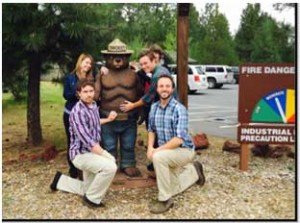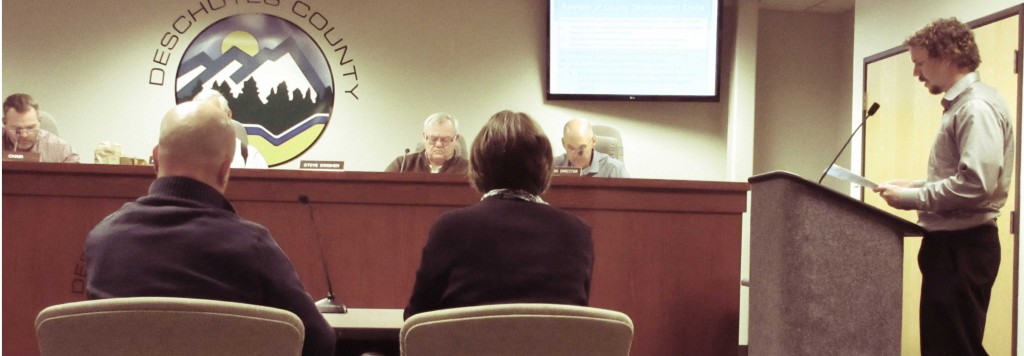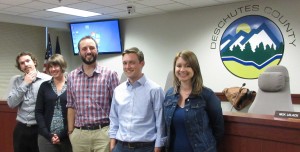As the school year comes to an end and families start planning summer vacations, Deschutes County prepares for the 2015 wildfire season. With the June 2014 Two Bulls Fire fresh in their mind and visible on the landscape, County officials plan for another high-risk fire season. This year’s wildfire season has an ominous start as Governor Kate Brown designates Deschutes County in a drought emergency.
“The majority of our state is parched due to the warm winter and lack of snow,” Governor Brown said. “As we move into summer, many areas of the state are going to dry out very quickly, likely leading to a difficult fire season as well as water shortages. We need our state, local and federal partners to be prepared as our communities grapple with hot and dry conditions [1].”
Residents have already prepared by collecting and recycling a record amount of yard debris through the FireFree program[2]. The 2015 May pick-up collected 37,929 cubic yards of debris, 27% more than 2014. Deschutes County residents participate in the spring and fall events to clear and recycle needles, branches, leaves, and brush debris around their homes. The cleanups represent a sustained effort to reduce risk of wildfire and create defensible space around homes.
County Officials are also being proactive by partnering with the Community Planning Workshop (CPW) to conduct a review and analysis of their county development code as it relates to wildfire. Over the past five months, our County Code Review team has developed and presented program and policy options to County staff. The goal of the team’s code review process is to codify higher safety standards and make regulations more transparent for developers and homeowners seeking to comply.
This project’s importance stems from the fact that Deschutes County is the fastest growing county in Oregon, and about a third of population growth is locating outside city limits, in wildland-urban interface areas where wildfires can burn thousands of acres unabated. By proposing higher safety standards on County lands, we hope to shape future development in a way that minimizes the risk that wildfires pose to lives and property. Although implementation of these policy options will not take place immediately, we are working closely with County Staff to ensure our policies are incorporated into the County’s work plan moving forward.
[1] http://www.oregon.gov/newsroom/Pages/NewsDetail.aspx?newsid=730
[2]http://www.firefree.org/
 About the Authors: the Deschutes County Code Review Team is made up of Community and Regional Planning Masters candidates Michael DeHart, Erin Horan, Maureen Jackson, Brett Setterfield, and Drew Pfefferle. Team members are studying Community and Regional Planning in various areas of interests including environmental planning and policy, transportation, and natural hazard planning and mitigation.
About the Authors: the Deschutes County Code Review Team is made up of Community and Regional Planning Masters candidates Michael DeHart, Erin Horan, Maureen Jackson, Brett Setterfield, and Drew Pfefferle. Team members are studying Community and Regional Planning in various areas of interests including environmental planning and policy, transportation, and natural hazard planning and mitigation.



